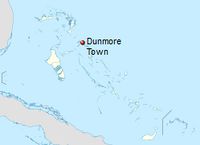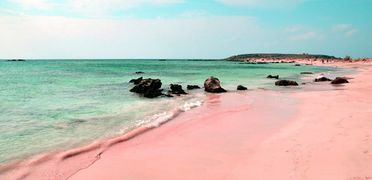Difference between revisions of "Eleuthera"
(→Harbour Island) |
|||
| Line 10: | Line 10: | ||
|Merch = -0 | |Merch = -0 | ||
}} | }} | ||
| − | + | Life was harsh in those years, and wrecking became an important source of income. Residents of Harbour Island had licenses to assist wrecked ships in return for a third of the recovered goods. Legend has it the wreckers promoted their business by luring ships onto reefs. But some historians counter that the locals were just as likely to prioritize saving lives over saving the loot. | |
=Locations= | =Locations= | ||
===Harbour Island=== | ===Harbour Island=== | ||
Revision as of 23:51, 1 September 2022
| Eleuthera, Bahamas | ||||||||||||

| ||||||||||||
| ||||||||||||

|
Life was harsh in those years, and wrecking became an important source of income. Residents of Harbour Island had licenses to assist wrecked ships in return for a third of the recovered goods. Legend has it the wreckers promoted their business by luring ships onto reefs. But some historians counter that the locals were just as likely to prioritize saving lives over saving the loot.
Contents
Locations
Harbour Island
See Wikipedia
In the mid-17th century, British puritans in search of religious freedom, known as the Eleutheran Adventurers, settled on Eleuthera across the water, then on Harbour Island. These settlers established an independent government and settlement that lasted for nearly 70 years, from when the puritans landed in 1650 to when Harbour Island surrendered its rights to the British Crown in 1717. Life was harsh in those years, and wrecking became an important source of income. Residents of Harbour Island had licenses to assist wrecked ships in return for a third of the recovered goods. Legend has it the wreckers promoted their business by luring ships onto reefs. But some historians counter that the locals were just as likely to prioritize saving lives over saving the loot.
- Home of Thomas Friendly
